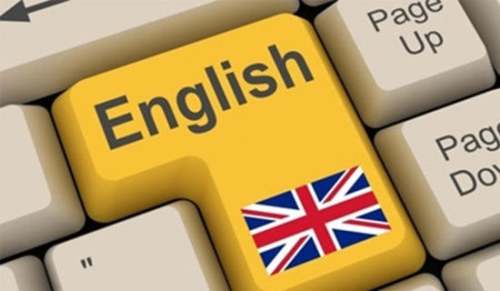初中英语9大基本句型
初中英语9大基本句型
在日常的学习中,看到知识点,都是先收藏再说吧!知识点也可以通俗的理解为重要的内容。为了帮助大家更高效的学习,以下是小编为大家收集的初中英语9大基本句型,欢迎大家分享。

一、简单句的九大基本句型
1. “主语 + 谓语”(即“主谓”句型)
这一句型英汉语言结构形式完全相同,说明“某人或某物如何动作”,或者说“某人或某物自身怎样运动”。
例:They arrived in Harbin yesterday morning.
分析:“他们”(主语)“到了”(谓语动作)。
The earth turns around the sun.地球围绕太阳转。
The sun rises in the east, and sets in the west.太阳东升西落。
2. “主语 + 谓语 + 宾语”(即“主谓宾”句型)
这一句型英汉语言的结构形式完全相同,用以说明“某人或某物做什么事情”,或者说“某人或某物发出了动作,并且其动作涉及到另一个人或物”。
例:I study English.
分析:“我”(主语)“学习”(谓语动作)“英语”(宾语即动作涉及的对象)。
I like swimming.我喜欢游泳。
3. “主语 + 谓语 + 间接宾语 + 直接宾语”(即“主谓双宾”句型)
这一句型英汉语序结构相同,说明“某人为谁(间接宾语为人)做某事”,或者说“某人或物的运动涉及到两个对象,其中一个间接对象为人,另一个为物”。
例:Our teacher taught us English.
分析:“我们的老师”(主语)“教”(谓语动作)“我们”(间接宾语)“英语”(直接宾语)。
4. “主语 + 谓语 + 宾语 + 宾语补足语”(即“主谓宾补”句型)
这一句型说明“某人或某物要求(使、让)某人做什么”或“某人感觉某人或物怎么样”。
例: He asked her to go there.
分析:“他”(主语)“要求”(谓语动作)“她”(宾语即动作涉及的对象)“去那里”(补语—补充说明宾语应做什么)。
5. “主语 + have + 宾语”(即“拥有”句型)
这一句型主要用于说明“某人或某物拥有什么(宾语,即有形或无形的资源)”。
例: You have a nice watch. 你有一块漂亮的手表
分析:“你”拥有一块漂亮的手表,即你拥有一个可以及时且漂亮的器具。
6. “There + be + 主语+ …”(即“存在”句型)
这一句型用以说明“在某地或某时存在某人或物”。
例:There is a bird in the tree. 在树上有一只鸟。
分析:“在树上”(地点)“有一只鸟”(存在物)。
7. “主语 + 系动词+ 表语”(即“主系表”句型)
这一句型用以说明“某人(某物、某事、某种概念)具有什么特征或处于什么状态”。汉语的“是”字结构属于这一英语句型的形式之一。常用的联系动词有be, keep,lie, remain, stand, become, fall, get, go, grow, turn, look, feel, seem, smell, sound, taste, 等。
例: I am a teacher. 我是一名老师
分析:“我”(主语)“是”(系动词)“一名老师”(表语—即表明主语的身份)。
She felt very tired. 她感觉到很累。
He became an engineer.他成为了一名工程师。
You look pale today, are you ill? 你今天脸色看起来苍白,病了吗?
8. 比较句型
这一句型用以比较物质甲与乙之间的异同。
1) 相等比较: …as + 形容词/副词原级 + as…;
…as + 形容词+名词 + as…
例:He is as rich as John.他和约翰一样富有。
例:He has as much money as she does.他和她的钱一样多
2) 劣等比较: …less + 形容词/副词原级 + than …
例:He is less careful than she. 他没她细心。
3) 优等比较:…+ 形容词/副词比较级 + than… ;
…the + 形容词/副词比较级 + of the two…
例:She is more careful than he.她比他细心多了。
例: He is the cleverer of the two boys.两个男孩中他更聪明些。
4)最高级:the + 形容词/副词最高级(单数名词或one)+ {of(among) + 人或物}
{in + 场所}
例: He is the tallest in the class.他是班上最高的。
9. “it + is/was + 形容词 + to do/从句”(即评价句型)
这一句型用于说明“某一动作或事情属于什么性质或具有什么特征”。即对某一动作或事情进行评价。(这里it 是形式主语,真正的主语是 to do 结构或 that 从句)
例:It is important to learn a foreign language.学习一门外语很重要。
分析:本句重在说明“学习一门外语”(to learn a foreign language)这一动作的性质是“重要的”。
基式被动句
句型[主语+(特殊定式动词)+be+过去分词…+by+施动者]
1. We have been greatly encouraged by Lei Fengs example.
2. Smoking is not permitted in this theatre. 3. How the steel was tempered?
4. Robert Finn was dismissed by the boss of the factory.
5. If Cowperwood were convicted, Stener needs must be.
6. The story will be continued in our next months issue.
7. Has the work been finished ahead of time?
[注] 阅读时不要把含有by的成语当成施动者,如:by hand(用手)by itself(独自)by storm(突然)by air(乘飞机)例如: "Many years ago a great castle in Holland was taken by storm. The enemies entered the castle…"
句型[主语+get +过去分词+其他]
1. He got killed in the war. 2. The boy got hurt on his way home from work.
3. This story eventually got translated into English. 4. He got dismissed. 5. He got plucked. 6. He got drowned last year. 7. I dont want to get mixed up with the police again.
句型[主语+be+形容词+to be +过去分词+其他]
1. She is bound to be received warmly. 2. We are liable to be overheard here.
3. He is not likely to have been notified about it. 4. Cast iron is apt to be broken.
5. Everything that is good is sure to be praised and everything bad is sure to be exposed.
6. He was unlucky to be hurt.
句型[主语+谓语+to be+过去分词+其他]
1. He seemed to be shut up in himself like a shellfish. 2. Is it to be sung or said?
3. "Would you like to be taught Latin?" - I asked.
4. She asked to be sent to work in the countryside.
5. He preferred to be assigned something more difficult to do.
句型[主语+被动式谓语+介词/副词虚助词+by+施动者]
1. He was often spoken about. 2. He was well looked after. 3. That man can be relied upon.
4. This idea was put forward by Mr. Wheatley. 5. Children are well taken care of in the nurseries.
[附注1] 表示被动行为的施动者主要用by,但也有用with, 不过with已近于表示行为的工具,后面不能接人的名词,如:I was much impressed with the beauty of the music. He is deeply impressed with your generous donation.
He was killed with a bullet. I was struck with an idea.
[附注2] 一般说来,只有当谓语是被动式时,这个句子才可称为被动句,下面的句子含有被动意义的非谓语成分,虽然表达了一定的被动意义,但是不能说是被动句,She didnt like herself to be praised like that. 这种被动意义的非谓语成分主要由下了词语表达出来:
1) 被动不定式。它可以在句中作主语、定语、复合宾语、状语等。
It is an honor for me to be invited to take part in the meeting.
He wanted the letter to be typed at once. She was the first woman to have been elected to such a post.
2) 被动分词在句中作定语、复合宾语等。He told us to keep a secret of the things being discussed.
The goods ordered last month have not arrived yet. Youll find the topic being discussed everywhere.
The speech made by the Prime Minister yesterday delighted his supporters.
3) 被动动名词。I had the honor of being elected His being neglected by the host added to his uneasiness.
返回:初中英语句型分类知识点详解
初中英语定语从句知识点:限制性定语从句与非限制性定语从句
1.二者差异比较
限制定语从句紧跟先行词,同先行词这间一般不加逗号,仅修饰先行词,可以由关系代词.关系副词或that来引导。非限制性定语从句仅作补充或说明,用逗号与主句隔开,既可修饰先行词,又可修饰整个主句,不可用that引导。
2.关系代词和关系副词的选择依据
弄清代替先行词的关系词在从句中作什么成分,作状语的应选用关系副词,作主语.宾语或表语的可选用关系代词。
3. 先行词与定语从句隔离
定语从句一般紧跟在先行词之后,但定语从句与先行词之间有时也会插入别的成分,构成先行词与定语从句的隔离。例如:
1) This is the article written by him that Is poke to you about.
2) He was the only person in this country who was invited.
返回:初中英语知识点详解——定语从句篇
初中英语知识点总结:初中三年级上册重要句型
1. Why don’t you do sth.?
2. make sb. Happy
3. borrow sth. from sb.
4. forget to do sth.
5. pay fro sth.
6. return sth. To sb.
7. learn sth. from sb.
8. be famous for sth.
9. No matter what…
10. be with sb.
11. go on doing sth.
12. speak highly of sb.
13. keep doing sth.
14. allow sb. To do sth.
15. encourage sb. to do sth. 16. It is said that…
初中英语知识点总结:初中二年级下册重要句型
1. We’d better not do sth.
2. leave one. oneself
3. find one’s way to a place
4. stand on one’s head
5. make sb. Happy
6. catch up with sb.
7. pass on sth. to somebody
8. spend time doing sth.
9. go on doing sth.
10. get on well with sb.
11. be angry with sb.
12. be fed up with sth.
13. not…until…
14. make room for sb.
初中英语知识点总结:初中二年级上册重要句型
乐加乐英语:搜集整理《初中英语知识点总结:初中二年级上册重要句型》供大家参考学习!
II. 重要句型
1. have fun doing sth.
2. Why don’t you…?
3. We’re going to do sth.
4. start with sth.
5. Why not…?
6. Are you going to…?
7. be friendly to sb.
8. You’d better do sth.
9. ask sb. for sth.
10. say goodbye to sb.
11. Good luck(with sb)!
初中英语知识点总结:初中一年级下册重要句型
乐加乐英语:搜集整理《初中英语知识点总结:初中一年级下册重要句型》供大家参考学习!
II. 重要句型
1. Let sb. do sth.
2. Could sb. do sth.?
3. would like sth.
4. would like to do sth.
5. What about something to eat?
6. How do you spell …?
7. May I borrow…?
